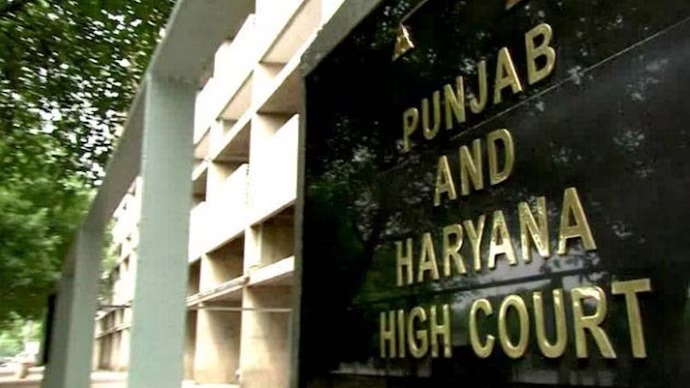
Punjab & Haryana High Court: Income Tax Reassessment Beyond Four Years Invalid After Section 143(3) Assessment
Court says reassessment requires fresh material; mere change of opinion is not allowed.
Judgment strengthens taxpayer protection against prolonged scrutiny and arbitrary reopening of cases.
By Our Legal Reporter
New Delhi: November 12, 2025:
In a significant judgment, the Punjab and Haryana High Court have held that reassessment proceedings under the Income Tax Act cannot be initiated beyond four years if the original assessment was completed under Section 143(3). The ruling provides clarity on the scope of reassessment powers and strengthens taxpayer protection against arbitrary reopening of cases.
The decision is expected to have wide implications for businesses and individuals facing prolonged scrutiny from tax authorities.
Background of the Case
The case involved a taxpayer whose assessment had been finalized under Section 143(3) of the Income Tax Act. Several years later, the tax department attempted to reopen the case, citing reassessment provisions.
The taxpayer challenged the reassessment, arguing that it was beyond the permissible four-year period and amounted to a mere change of opinion rather than discovery of new material.
The matter reached the Punjab and Haryana High Court, where a division bench comprising Justice Lisa Gill and Justice Meenakshi I. Mehta delivered the ruling.
Court’s Observations
- Section 143(3) assessment is final – Once an assessment has been completed under Section 143(3), it is considered a detailed and final scrutiny of the taxpayer’s return.
- Reassessment beyond four years invalid – The court held that reassessment beyond four years is not permissible unless there is new, tangible material showing income escaped assessment.
- Change of opinion not allowed – The court emphasized that reassessment cannot be based on a mere change of opinion by the Assessing Officer.
- Taxpayer protection – The ruling reinforces the principle that taxpayers should not face indefinite uncertainty due to repeated reopening of assessments.
The Verdict
The Punjab and Haryana High Court declared the reassessment proceedings invalid and quashed the notices issued by the tax department. The judgment clarified that reassessment powers must be exercised cautiously and only when supported by fresh evidence.
This ruling aligns with earlier Supreme Court judgments that have consistently held that reassessment cannot be used as a tool for review or change of opinion.
Also Read: Allahabad High Court Orders Police Verification for Passports Must Be Completed Within Four Weeks
Impact on Taxpayers
- For individuals and businesses: It provides relief from prolonged scrutiny and arbitrary reopening of cases.
- For tax authorities: It sets clear limits on reassessment powers, ensuring accountability.
- For compliance: Taxpayers can now plan with greater certainty, knowing that assessments finalized under Section 143(3) cannot be reopened after four years without new material.
Expert Opinions
Tax experts have welcomed the judgment, calling it a landmark ruling that strengthens taxpayer rights. According to chartered accountants, the decision will reduce litigation and provide clarity on reassessment provisions.
Also Read: Supreme Court Slams Jharkhand High Court for Two-Year Delay in Delivering Reserved Judgment
Legal analysts note that the ruling reinforces the principle of finality of assessments, which is essential for maintaining trust in the tax system.
Wider Context
Reassessment under the Income Tax Act has been a contentious issue, with taxpayers often facing repeated notices years after their assessments were finalized. Courts have consistently emphasized that reassessment powers must be exercised only when there is new and tangible evidence of income escaping assessment.
The Punjab and Haryana High Court’s ruling adds to a growing body of judgments that limit arbitrary reassessment and protect taxpayer rights.
Conclusion
The Punjab and Haryana High Court’s ruling that reassessment beyond four years is invalid after a Section 143(3) assessment is a landmark in Indian tax jurisprudence. By reinforcing the principle of finality of assessments and restricting reassessment to cases involving new material, the court has strengthened taxpayer protection and ensured greater certainty in tax compliance.
This judgment is expected to influence future cases across India and provide much-needed clarity on the scope of reassessment powers under the Income Tax Act.
Also Read: Paying Tax on Income Does Not Protect Benami Property Deals from Legal Action